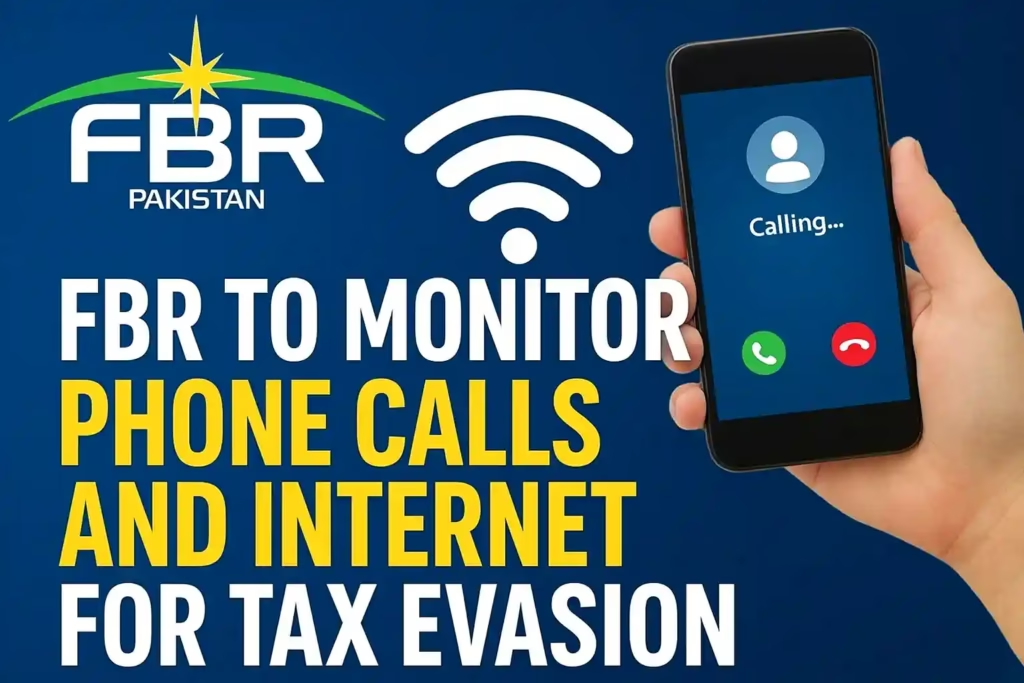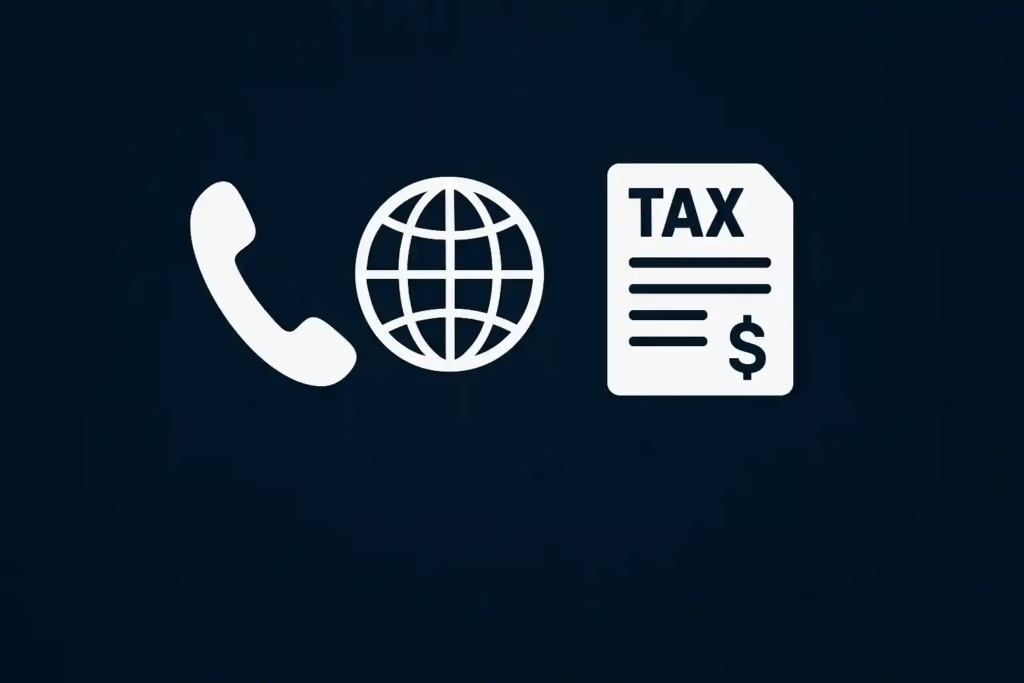Introduction

Big news for taxpayers in Pakistan! The Federal Board of Revenue (FBR) has announced a new system that will allow them to check your phone calls, internet usage, and online transactions.
The idea is simple: if someone is hiding income or not filing taxes properly, the FBR wants to catch them by verifying their digital footprint. But while the government says this will help expand the tax net, ordinary people are worried about what it means for their privacy and personal data.
What Exactly Will FBR Check?
Under these new regulations, FBR will have the right to:
- Look at phone call records (numbers you dial, who called you, and call duration).
- Track internet usage (websites you visit, online services you use).
- Verify online financial activity (purchases, payments, and digital transactions).
This doesn’t mean they will listen to your conversations or read private messages. Instead, they will match your lifestyle and spending habits with the income you declare.
Example: If someone declares a very small income but regularly buys luxury items online or makes expensive international calls, the FBR will flag them.
Why Is the Government Doing This?
The government has a big problem – very few people in Pakistan actually pay taxes. Out of over 240 million people, only around 3.5 million file tax returns.
This creates two issues:
- Low revenue collection – Pakistan has to borrow money to run the country.
- Unfair burden – Honest taxpayers end up paying more while wealthy non-filers get away.
The FBR says monitoring phone calls and internet activity will:
- Help catch tax evaders.
- Bring more people into the tax net.
- Reduce corruption and fraud.https://www.fbr.gov.pk/
Public Reaction – A Mix of Fear and Concern
Not surprisingly, this news has worried many people. Ordinary Pakistanis are asking questions like:
- “Will the government read my private chats?”
- “What if my personal data gets misused?”
- “Can FBR really track every call and every website?”
Digital rights groups are also concerned. They argue that such surveillance powers can be misused, and without strong data protection laws, there is always a risk of privacy violations.
What Does This Mean for Taxpayers?
For Regular Filers
If you already file your taxes honestly and declare your true income, there’s nothing to fear. This new system is mainly aimed at those who try to hide income or avoid filing. Still, it’s a reminder to:
- Keep your records clean.
- Save receipts and documents of your business or salary.
- Make sure your lifestyle matches your declared income.
For Non-Filers
This is where the real impact will be felt. Non-filers and those who underreport income should be prepared for:
- Audits if their lifestyle doesn’t match their declared income.
- Penalties and fines for hiding income.
- Even legal action if fraud is proven.
The message is clear: become a filer before it’s too late.
How Will the System Work?

Experts say FBR will work with:
- Telecom companies to get call records.
- Internet service providers (ISPs) to track browsing data.
- Banks and digital platforms to verify transactions.
They may also use AI-powered systems to analyze large amounts of data and highlight suspicious cases automatically.
Taxpayer Categories – How They Will Be Affected
| Type of Taxpayer | Current Situation | After New Policy |
|---|---|---|
| Tax Filers | Already declare income, enjoy lower tax rates | Still monitored, must ensure records are clean |
| Non-Filers | Avoid taxes, but still enjoy public services | Likely to face audits, fines, and legal action |
| Businesses | Some under-report income or hide transactions | Digital transactions will be cross-verified |
Benefits if Implemented Fairly
If done properly, this move can:
- Increase tax collection without raising tax rates.
- Ensure that wealthy people pay their fair share.
- Reduce Pakistan’s dependence on loans.
- Make the tax system more transparent.
Risks and Challenges
But there are also challenges:
- Privacy concerns – People fear misuse of personal data.
- Technical limits – Pakistan may not yet have the advanced systems needed for safe large-scale monitoring.
- Trust issues – Many citizens already don’t trust the FBR. Adding surveillance may increase that mistrust.
Global Examples
Pakistan is not the first country to use digital monitoring for taxes. Many countries like the US, UK, and EU nations already use advanced tracking to catch tax evasion.
But the big difference is that those countries also have strict privacy laws. That’s why experts say Pakistan must also introduce data protection rules before rolling out this system fully.
FAQs
Q1: Will FBR listen to my private calls?
No, the content of calls is not being monitored. Only call records (numbers and duration) will be checked.
Q2: Can FBR see my browsing history?
Yes, they can track websites and online activity if you are suspected of hiding income.
Q3: Is everyone’s data being checked?
No, only those who are suspected of tax evasion will be targeted.
Q4: What if I already file my taxes?
You don’t need to worry as long as your declared income matches your spending and lifestyle.
Q5: What should I do if I am not a filer?
Register as a filer and start declaring your income. Otherwise, be ready for stricter checks.
Conclusion
The FBR’s decision to monitor phone calls and internet activity is one of the boldest tax reforms in Pakistan’s history. While it promises to catch tax evaders and increase revenue, it also creates fears about privacy and surveillance.
For honest taxpayers, the advice is simple: keep your records clean and continue filing on time. For non-filers, the message is even clearer: become a filer before the system catches up with you.
Only time will tell whether this step helps Pakistan fix its tax system or creates more problems. But one thing is certain – the era of hiding income in silence is coming to an end.

Pingback: PTA Crackdown on Illegal SIMs in Karachi Fraud in Pakistan
Pingback: 2 Hidden Chrome Settings to Instantly Speed Up Your PC